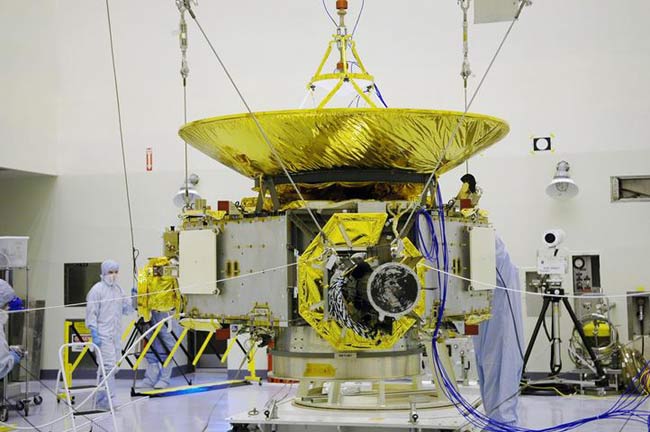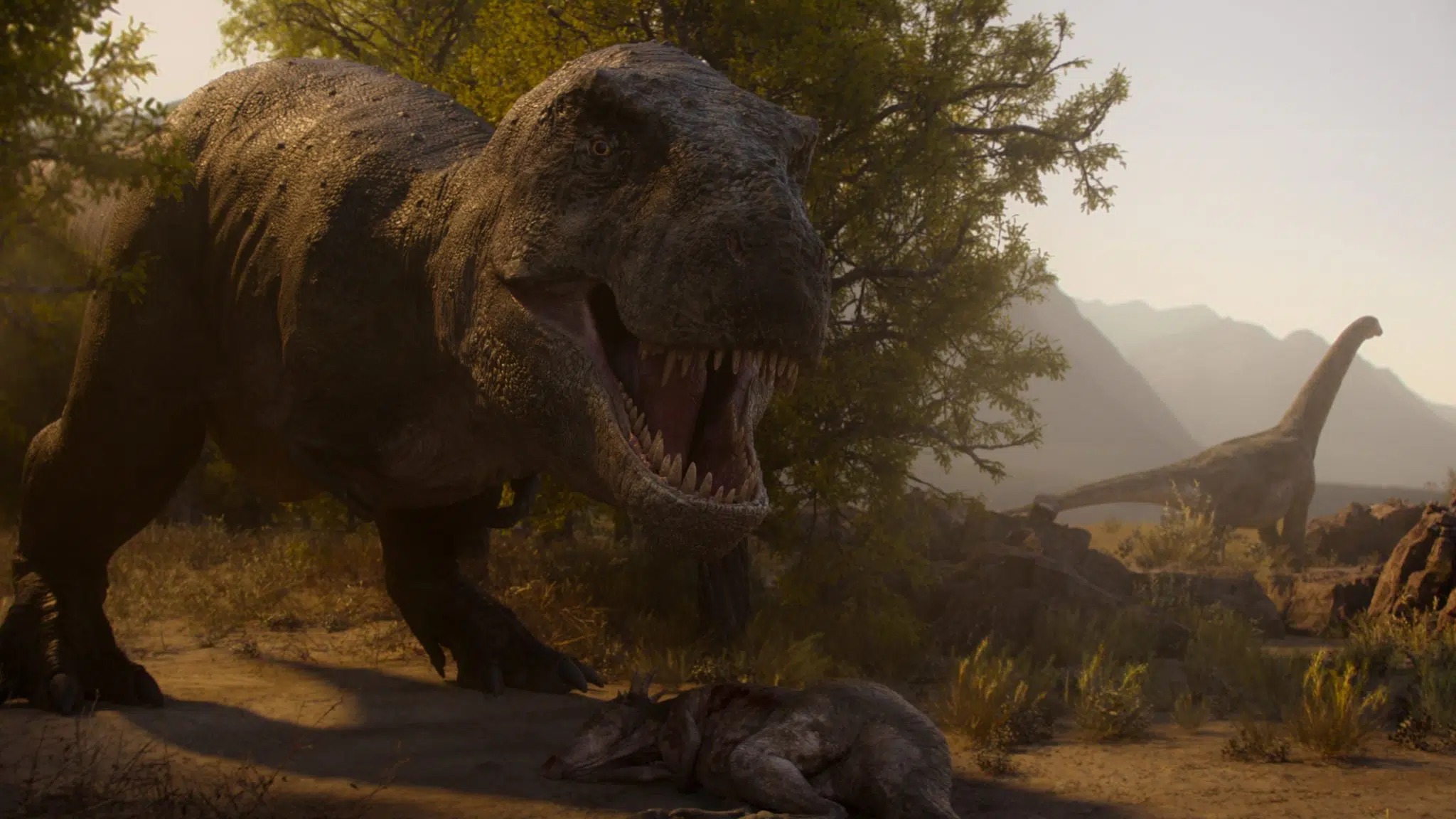Hurricane Damage Prompts Booster Replacement for NASA's Pluto Probe

Breaking space news, the latest updates on rocket launches, skywatching events and more!
You are now subscribed
Your newsletter sign-up was successful
Want to add more newsletters?

Delivered daily
Daily Newsletter
Breaking space news, the latest updates on rocket launches, skywatching events and more!

Once a month
Watch This Space
Sign up to our monthly entertainment newsletter to keep up with all our coverage of the latest sci-fi and space movies, tv shows, games and books.

Once a week
Night Sky This Week
Discover this week's must-see night sky events, moon phases, and stunning astrophotos. Sign up for our skywatching newsletter and explore the universe with us!

Twice a month
Strange New Words
Space.com's Sci-Fi Reader's Club. Read a sci-fi short story every month and join a virtual community of fellow science fiction fans!
LockheedMartin technicians are replacing one of the solid-fuel boosters attached to theAtlas 5 rocket that will launch NASA's New Horizons spacecraft to Pluto becauseof damage the motor sustained during Hurricane Wilma.
The Atlas 5 is beingassembled inside the 30-story Vertical Integration Facility at Cape Canaveral'sComplex 41 in advance of the targeted January 11 liftoff that will send thefive-ton New Horizons probe on its decade-long cosmic cruise to encounter theunexplored planet Pluto.
Although the center ofWilma remained well south of the Cape, the large storm delivered heavy rain andhurricane-force winds to the Space Coast on October 24 as it sliced acrossFlorida.
A third of the41-by-275-foot reinforced fabric "MegaDoor" on the assemblybuilding's opening that faces the launch pad tore in the storm, causing somedebris to fall inside the facility.
The Atlas 5's bronze firststage and Centaur upper stage were erected atop a mobile launch platform, andthe first of five strap-on solid rocket boosters was attached to the firststage when Wilma blew through. Atlas 5 rockets are put together with the VIF,then moved to the pad in the final 12 hours of the countdown.
Post-storm inspectionsrevealed a ding on the solid motor casing, prompting officials to order thebooster's removal and replacement. The motor may have been safe to fly,engineers believed, but officials ruled that exchanging it would be quickerthan the time required to analyze the damage and re-certify the booster.
The launch campaign resumedthis week following the Wilma cleanup and vehicle assessments. A second boosterwas added to the Atlas 5 on Tuesday, and the remaining three boosters earmarkedfor the mission will be installed through next week.
Breaking space news, the latest updates on rocket launches, skywatching events and more!
The damaged motor wasdetached Wednesday. Its replacement is expected to arrive in early December.
The slender white boostersare 67 feet long. They are ignited at liftoff to provide a powerful kick incombination of the rocket's RD-180 kerosene-fueled main engine. This launchwill mark the first time an Atlas 5 has flown with five strap-on boosters;earlier flights have featured pairs, and one mission used three.
Exactly what caused thedamage or even what punctured the MegaDoor remains unclear, officials say,since the event wasn't witnessed.
A re-planning of thepre-launch schedule is being conducted to recover from the unanticipatedbooster replacement.
The original plans allowedtime off during the Thanksgiving and year-end holiday seasons. But New Horizonsmust depart Earth within a narrow launch window dictated by alignment of theplanets, making it appear inevitable that some holiday time will have to bespent readying for the launch.
The overall launchopportunity extends from January 11 to February 14. However, the first 23 daysof the window are most desirable because a launch during that period enablesthe spacecraft to swing past Jupiter for a gravity sling-shot that speeds thetravel to Pluto. The final 12 days of the window would miss Jupiter, significantlydelaying the Pluto arrival.
Lockheed Martin is lookingat a temporary repair to the torn MegaDoor, while hoping tropical weathersystems stay clear of the Cape during the waning month of hurricane season. Along-term fix to the door is being studied.
Justin Ray is the former editor of the space launch and news site Spaceflight Now, where he covered a wide range of missions by NASA, the U.S. military and space agencies around the world. Justin was space reporter for Florida Today and served as a public affairs intern with Space Launch Delta 45 at what is now the Cape Canaveral Space Force Station before joining the Spaceflight Now team. In 2017, Justin joined the United Launch Alliance team, a commercial launch service provider.
